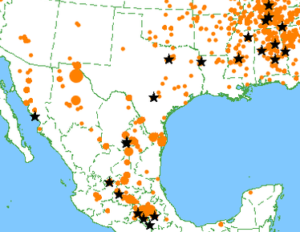The North American Free Trade Agreement (NAFTA) was a landmark agreement that fostered trade and economic cooperation among the United States, Canada, and Mexico. While NAFTA as a whole played a significant role in shaping the North American economy, certain regions emerged as key players in specific industries. In the automotive sector, Texas stood out as a vital hub within the NAFTA auto corridor. Let’s delve into how Texas plays a pivotal role in driving economic growth within this corridor.
The Rise of the NAFTA Auto Corridor
Under NAFTA, the automotive industry experienced remarkable growth and integration across North America. The establishment of the NAFTA auto corridor, an intricate network of highways, transportation infrastructure, and manufacturing facilities, became the backbone of the automotive supply chain. This corridor facilitated the seamless movement of parts, components, and finished vehicles across the region, boosting trade and efficiency.
Texas: A Strategic Location for Automotive Manufacturing
Located in the heart of the NAFTA auto corridor, Texas became an ideal location for automotive manufacturers and suppliers. The state’s strategic geographical position and well-connected transportation infrastructure provided easy access to both the U.S. and Mexican markets. Texas’ proximity to major automotive manufacturing hubs in Mexico, such as Monterrey and Saltillo, further solidified its importance within the corridor.
Texas attracted several major automotive manufacturers and assembly plants, contributing to the state’s economic prosperity. For instance, the General Motors Arlington Assembly Plant in Arlington, Texas, is one of the largest automotive manufacturing facilities in the state. This plant produces a wide range of vehicles and supports thousands of jobs in the region.
Supporting Industries and Supply Chain Integration
The growth of the automotive industry in Texas led to the development of supporting industries and suppliers along the NAFTA auto corridor. These suppliers provide components, parts, and materials necessary for automotive manufacturing and assembly. The presence of these suppliers not only strengthens the state’s economy but also fosters collaboration and innovation within the industry.
Transportation Infrastructure and Logistics
Texas also boasts a robust transportation infrastructure that facilitates the movement of goods within the NAFTA auto corridor. The state’s extensive highway system, including Interstates 35, 37, and 45, and its well-connected rail and port networks, ensures efficient transportation and distribution of automotive products. This infrastructure enhances Texas’ competitiveness and reinforces its position as a key player within the corridor.
Job Creation and Economic Impact
The automotive industry’s presence in Texas has had a substantial impact on job creation and economic growth. The establishment of automotive manufacturing and assembly plants, along with the growth of supporting industries, has provided employment opportunities for thousands of Texans. Additionally, the influx of investment and increased trade has boosted local economies and tax revenues.
Ultimately, Texas has emerged as a significant player in the automotive industry. The state’s strategic location, robust transportation infrastructure, and thriving automotive manufacturing and assembly plants have propelled its economic growth. By capitalizing on its advantages, Texas continues to foster collaboration, innovation, and economic prosperity within the NAFTA auto corridor. As the automotive industry evolves under the United States-Mexico-Canada Agreement (USMCA), Texas is well-positioned to maintain its pivotal role and contribute to the future success of the North American automotive sector.



